Today, more than one billion people, about one in eight globally, are on the move, driven by war, conflict, disasters, environmental degradation or economic instability. Migration and displacement are powerful social determinants of health, shaping how and whether people can access the health conditions they need to survive and thrive.
Climate change, recognized as a "threat multiplier", worsens food insecurity, disrupts livelihoods, and fuels further displacement. Whether by choice or forced, being on the move is a part of human life, but for many, it brings disproportionate exposure to risk, inequality, and exclusion from basic health services.
Refugees, migrants, and internally displaced persons (IDPs) frequently face unsafe journeys and precarious living conditions, often with limited access to clean water, adequate nutrition, sanitation, or shelter. Their susceptibility to communicable diseases is increased by the environmental risk factors related to their precarious living and working conditions. Many also face barriers to managing noncommunicable diseases, accessing maternal and newborn care, or receiving mental health support.
Thanks to the support of donors and partners, WHO works with governments and communities to deliver inclusive, equitable, and context-sensitive health services to people on the move. This includes immunization, disease surveillance, chronic disease management, reproductive and mental health care, support for health system resilience, amongst other efforts.
These contributions are grounded in the recognition that health is a human right, and that universal health coverage must be inclusive of all people, regardless of migratory status. The stories presented below show how rapid, compassionate action can protect lives and advance dignity, equity, and resilience, especially in times of crisis.
Landmark cholera vaccination campaign offers hope to Rohingya refugee camps
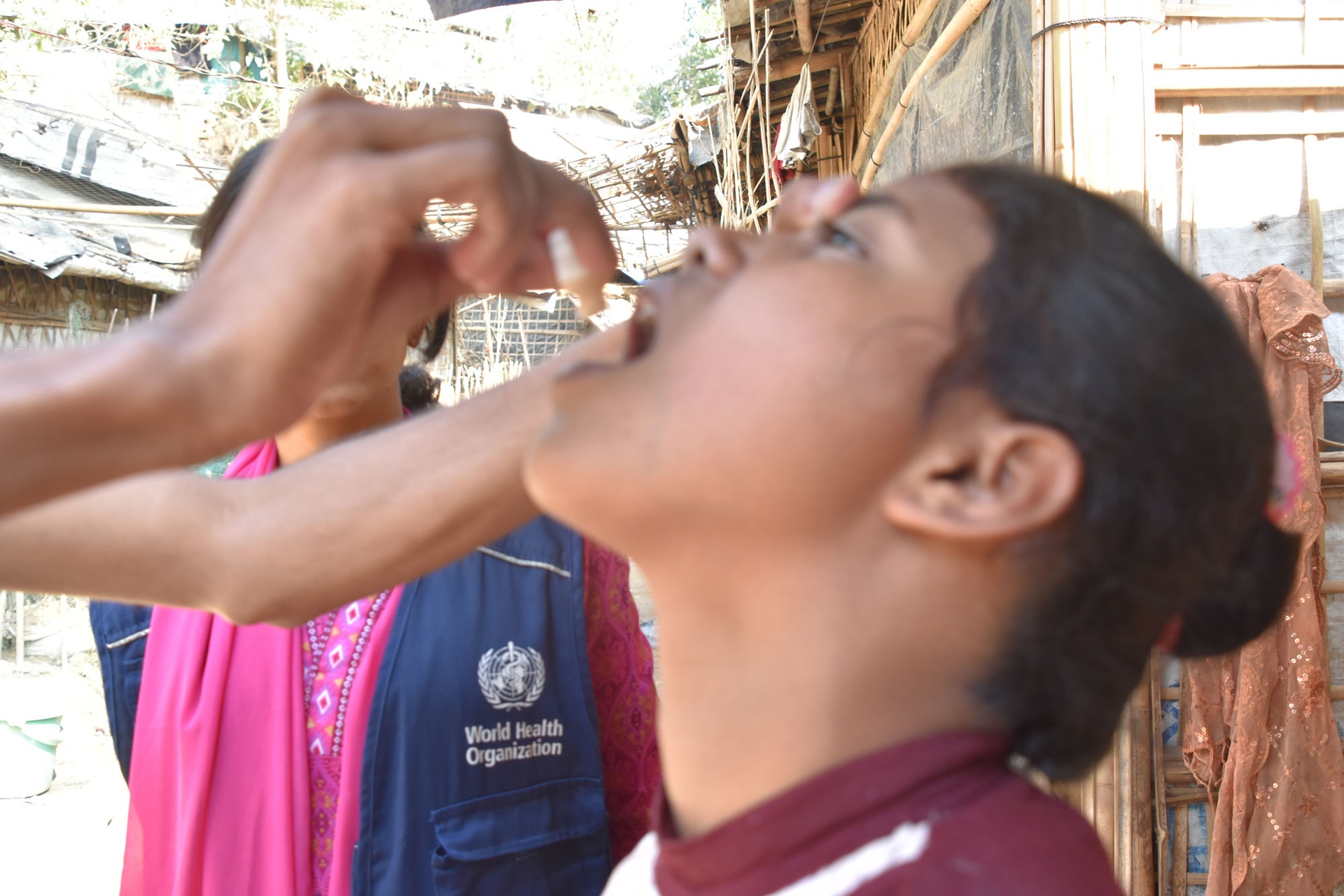 A young girl receives the OCV vaccine in one of the remote blocks of camp. Photo by: WHO/Mehnaz Manzur
A young girl receives the OCV vaccine in one of the remote blocks of camp. Photo by: WHO/Mehnaz Manzur
Cholera has been endemic in Bangladesh for decades, with seasonal peaks. It has remained a major health concern in the Rohingya refugee camps since 2017.
In a major joint effort, the Government of Bangladesh, with support from WHO, UNHCR, and health sector partners, launched a landmark cholera vaccination campaign in the Rohingya refugee camps on 12 January 2025. This initiative focused on children aged one year and older, following a rise in cholera cases detected through WHO’s disease monitoring system in both the camps and nearby host communities.
The five-day vaccination campaign aimed to reach 943 174 people across 33 camps and Bhasan Char Island. Over 1 700 community health workers, supervisors, and health sector partners visited 194 907 households to administer the single-dose Euvichol Plus vaccine.
Read the full story.
Delivering lifesaving health services for flood-displaced families in Nigeria
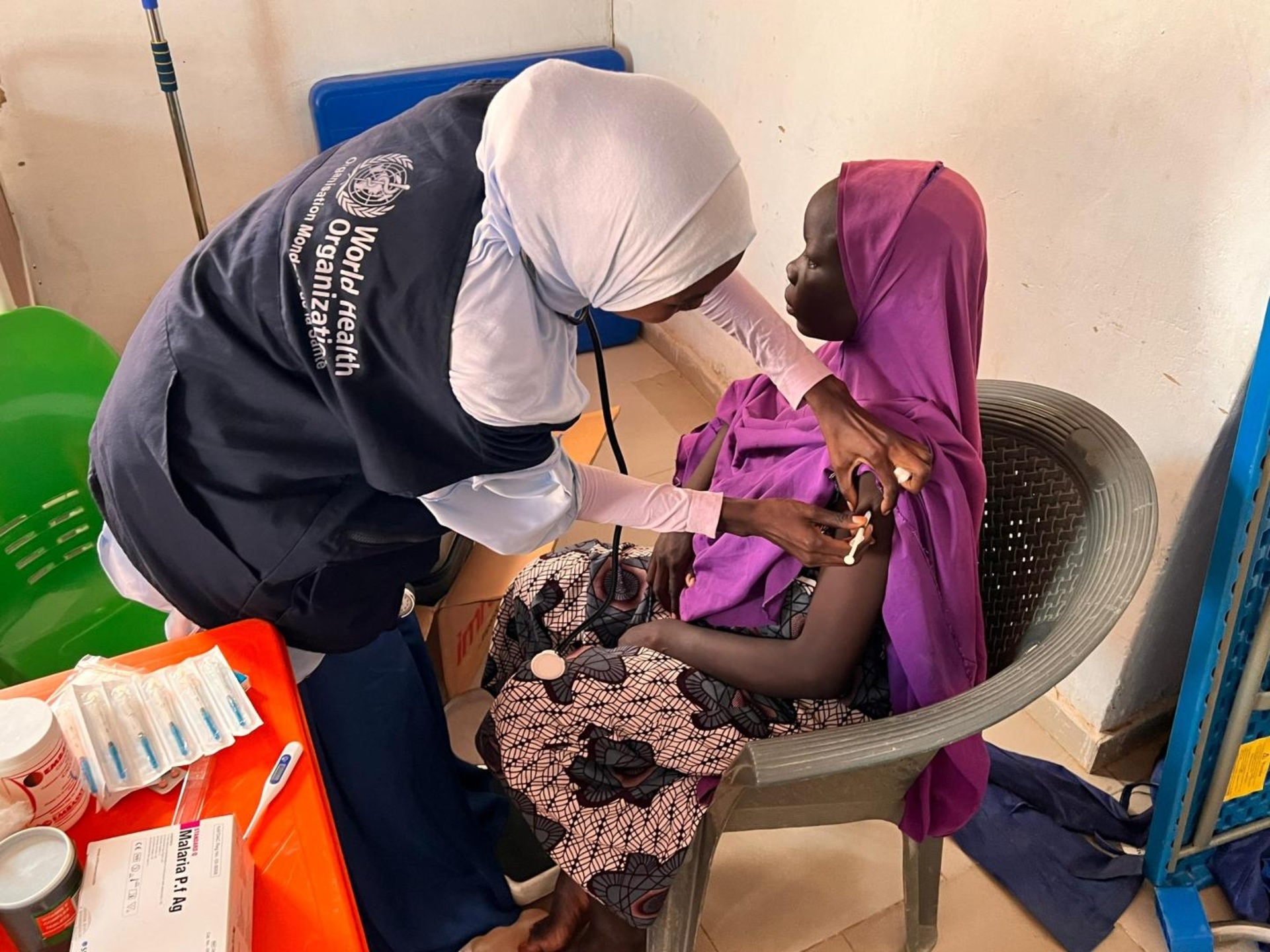 Delivering lifesaving health services for flood-displaced families in Nigeria. Photo by: WHO/Nigeria
Delivering lifesaving health services for flood-displaced families in Nigeria. Photo by: WHO/Nigeria
Borno state, in northeastern Nigeria, was severely impacted by recent floods, in September 2024, which displaced over 400 000 people. Almost 90 000 people in vulnerable situations were forced to take shelter in temporary camps with limited access to food, clean water and health services.
Displaced populations are at especially high risk from malnutrition, and diseases such as cholera, malaria and measles in a region where health systems are already fragile and strained.
Recognizing urgent health need, WHO, with financial support from USAID and the Government of Germany, deployed five mobile health teams made up of 35 public health experts, to provide routine immunization, maternal care and clinical services. So far, 34 camps and over 93 000 households have been reached and informed about how to prevent epidemic-prone diseases and adopt healthy household practices.
Read the full story.
Bringing health care closer to displaced communities in Somalia
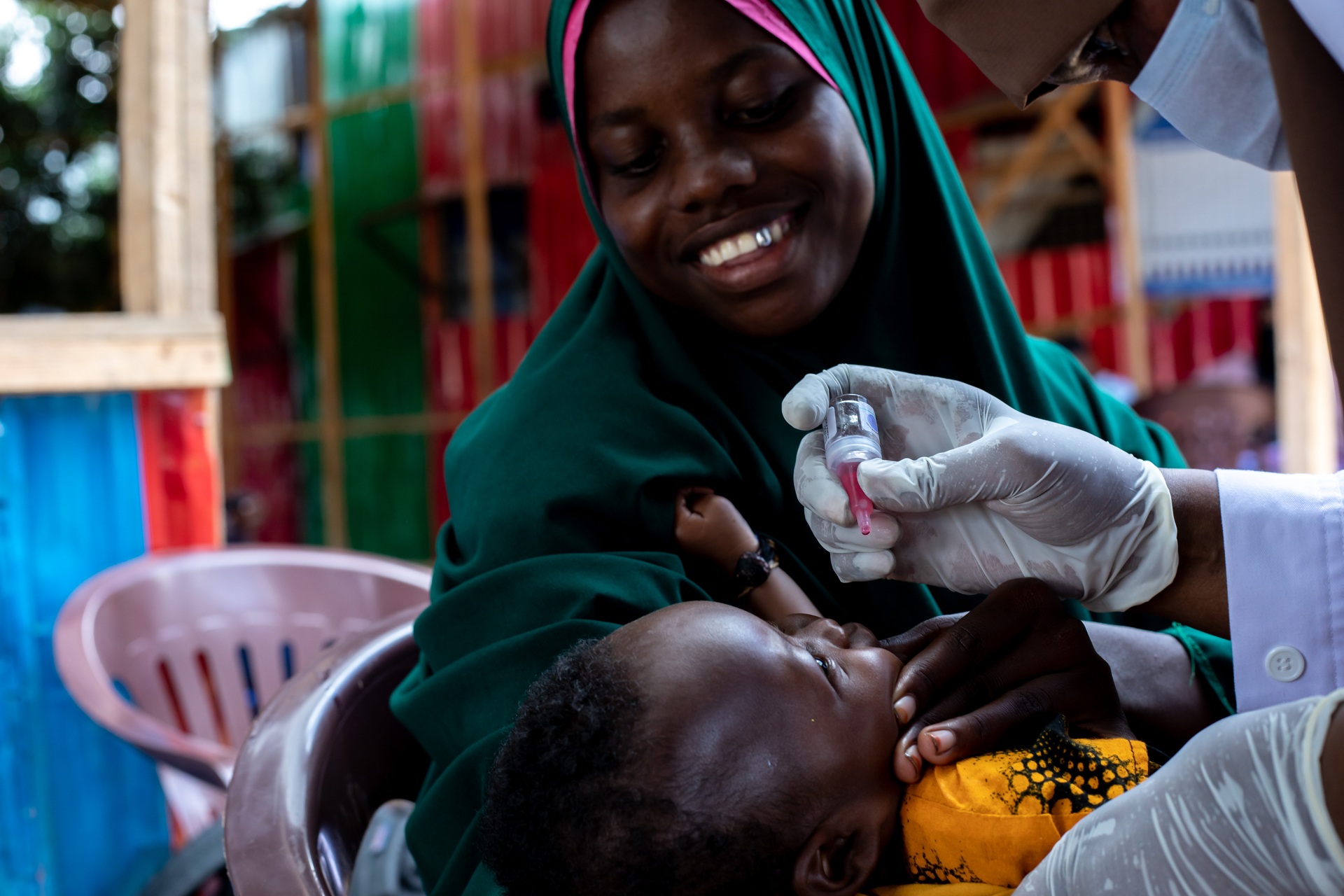 WHO drought response activities in affected districts in Somalia. Photo by: WHO/Somalia
WHO drought response activities in affected districts in Somalia. Photo by: WHO/Somalia
Somalia experienced a severe drought in 2022-2023. Donors responded swiftly with increased funding to save lives by treating severe acute malnutrition and the prevention and management of disease outbreaks.
This support enabled WHO to meet urgent health needs while also investing in the long-term capacity of local health services. For example, the Sinkadheer health centre in Al-Adalada camp, west of Mogadishu, provides a full range of services through the Integrated Health and Nutrition Programme. The centre helps ensure access to essential health care for families who might otherwise face financial or logistical barriers to treatment.
Supported by the European Commission Humanitarian Aid (ECHO), the German Federal Foreign Office, and other partners, the programme continues to improve health outcomes for Somali mothers and children, promoting dignity and resilience in the context of displacement. Each day, the centre serves around 200 patients, primarily from nearby internally displaced communities, offering primary health care, nutritional support, and services to prevent malnutrition.
Read the full story.
Bridging gaps in health and nutrition services for IDPs and crisis-affected communities in Ethiopia
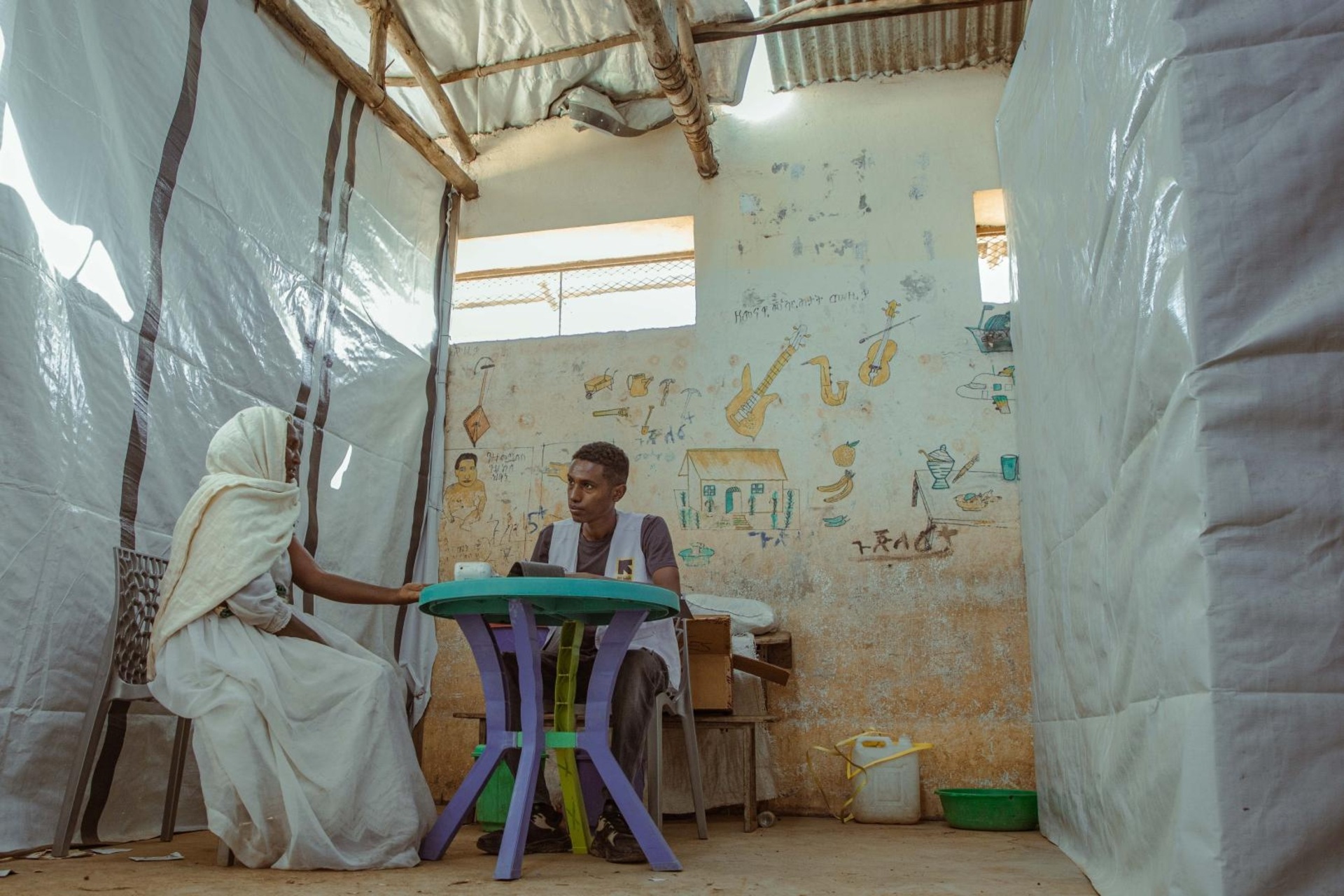 Bridging gaps in health and nutrition services for IDPs and crisis-affected communities in Amhara, Ethiopia. Photo by: WHO/Ethiopia
Bridging gaps in health and nutrition services for IDPs and crisis-affected communities in Amhara, Ethiopia. Photo by: WHO/Ethiopia
Since November 2021, Ethiopia's Amhara region has faced complex and protracted humanitarian crises driven by internal armed conflict, multiple disease outbreaks, and climate-related shocks- including drought and floods. The region also witnessed a growing influx of people fleeing conflict in neighbouring Sudan. Nearly a million internally displaced persons (IDPs) are living across 38 collective sites and host communities, alongside hundreds of thousands of refugees and returnees.
To ensure access to essential health services for displaced and crisis-impacted populations, WHO, in collaboration with regional government authorities, deployed Mobile Health and Nutrition Teams. As displacements increased, the number of mobile teams was scaled up to 19 in April 2024, comprising 132 health workers. This increase was made possible through support from the European Commission Humanitarian Aid (ECHO), the United States Agency for International Development (USAID), the UN Central Emergency Response Fund (UNCERF), and the People and Government of Japan.
These teams have provided over 124 250 medical consultations, including referrals for patients requiring specialized care. Services include primary health care, immunizations, maternal and child health support, nutritional care, mental health and psychosocial support, and first-line assistance for survivors of gender-based violence. They also address both communicable and noncommunicable diseases, helping ensure that health care is available and accessible to all.
Read the full story.
Health on the frontlines: caring for Haiti's displaced population
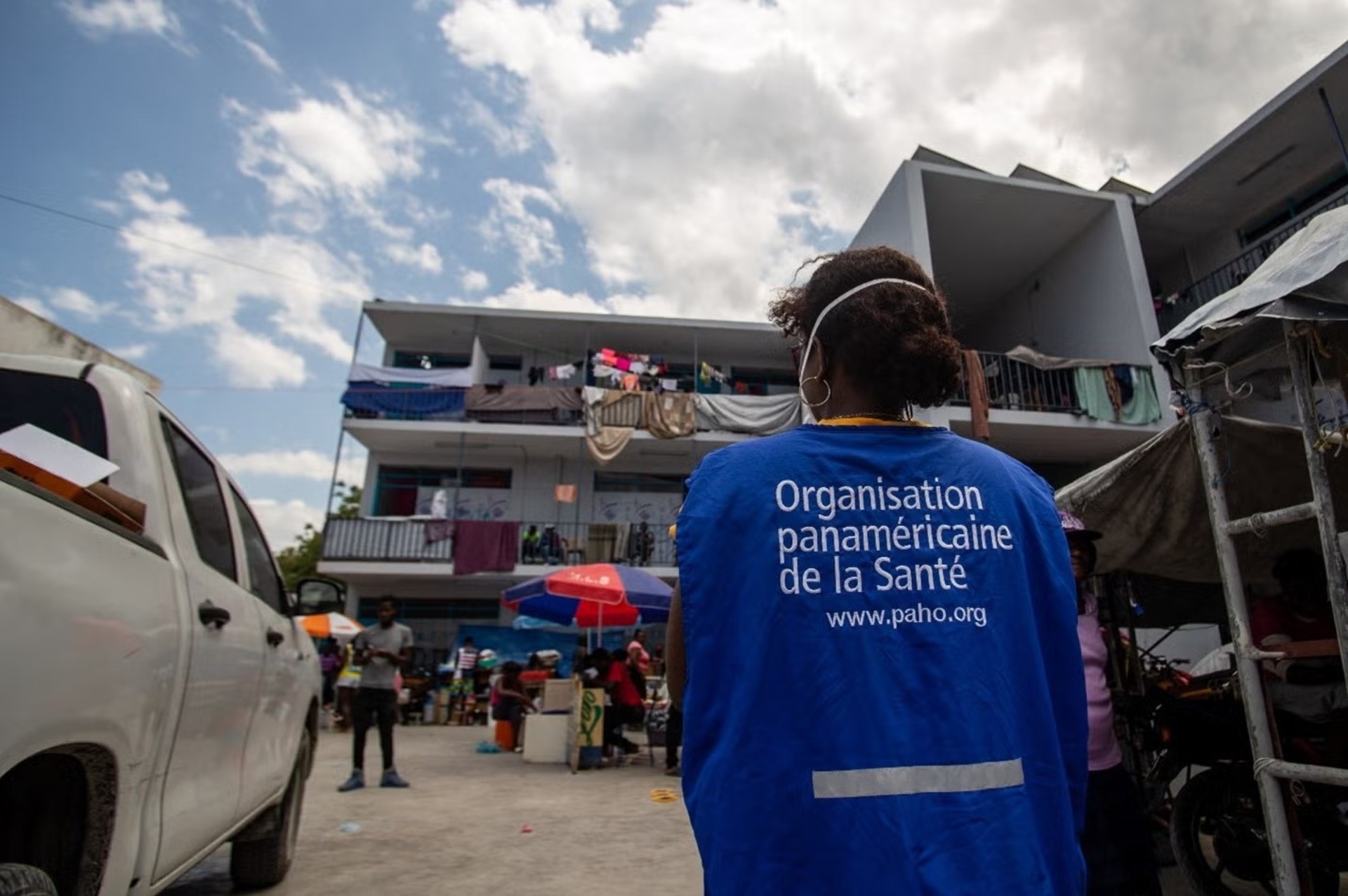 A mobile clinic organized at the Lycée Argentine Bellegarde IDP site. Photo by: WHO/PAHO
A mobile clinic organized at the Lycée Argentine Bellegarde IDP site. Photo by: WHO/PAHO
Since February 2024, Haiti has faced an escalating security crisis from escalating gang violence, political instability, and a humanitarian emergency, placing further strain on the country's already overstretched health system. This has significantly disrupted access to health care for millions in Haiti.
The crisis has most severely affected people living in precarious conditions, including the approximately 86 000 individuals residing across 84 IDPs sites of the metropolitan area of Port-au-Prince.
To help maintain access to essential services, mobile clinics have been established by the Ouest Department’s health authorities with the support from PAHO/WHO and other partners such as UNCERF. Disease surveillance activities have also been reactivated, including for cholera, through the deployment of surveillance and response teams to each site- helping to detect and respond efficiently to potential outbreaks.
Read the full story.
Support for public health emergency preparedness and response in Niger
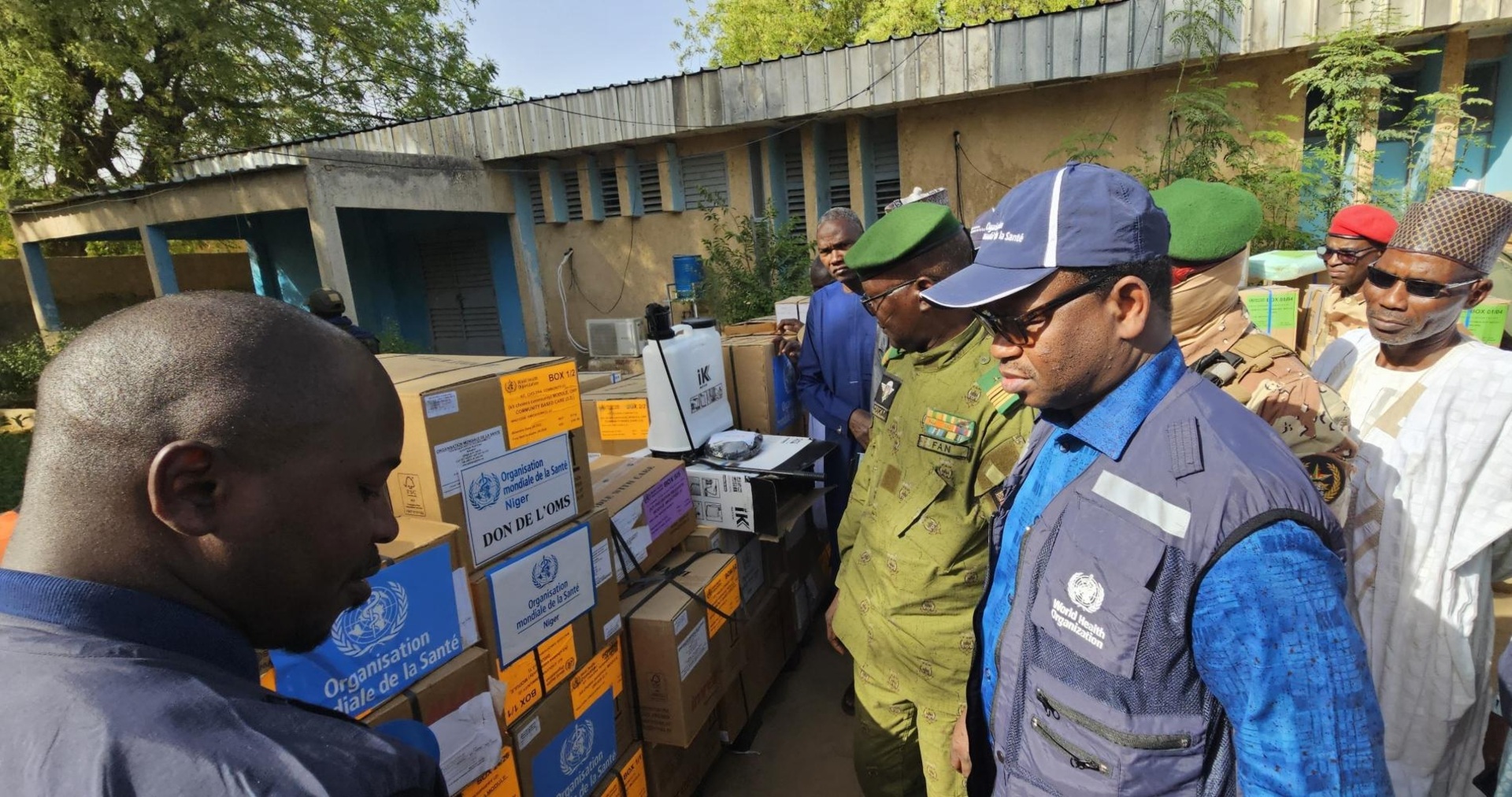 WHO medicines and medical supplies donation in Diffa, Niger. Photo by: WHO/Niger
WHO medicines and medical supplies donation in Diffa, Niger. Photo by: WHO/Niger
In March 2024, WHO delivered 16 tons of medicines and medical supplies valued at nearly 100 million FCFA (US$ 170 000) to health facilities across eight regions of Niger, which host large numbers of IDPs, refugees, and returnees.
This donation, funded through UNCERF and WHO's own resources, include medical consumables and treatment kits for pneumonia, meningitis, malaria, diphtheria, cholera, and other common illnesses.
“This donation comes at a crucial time when our health system in the Diffa region is under significant pressure. We will be able to strengthen access to quality health care and save the lives of the people of Diffa, who are already facing emergencies related to the growing number of IDPs, refugees and returnees,” said Colonel-Major Dr Garba Hakimi, Minister of Public Health, Population and Social Affairs.
Read the full story (French).
Lessons from Malta: advancing refugee and migrant health
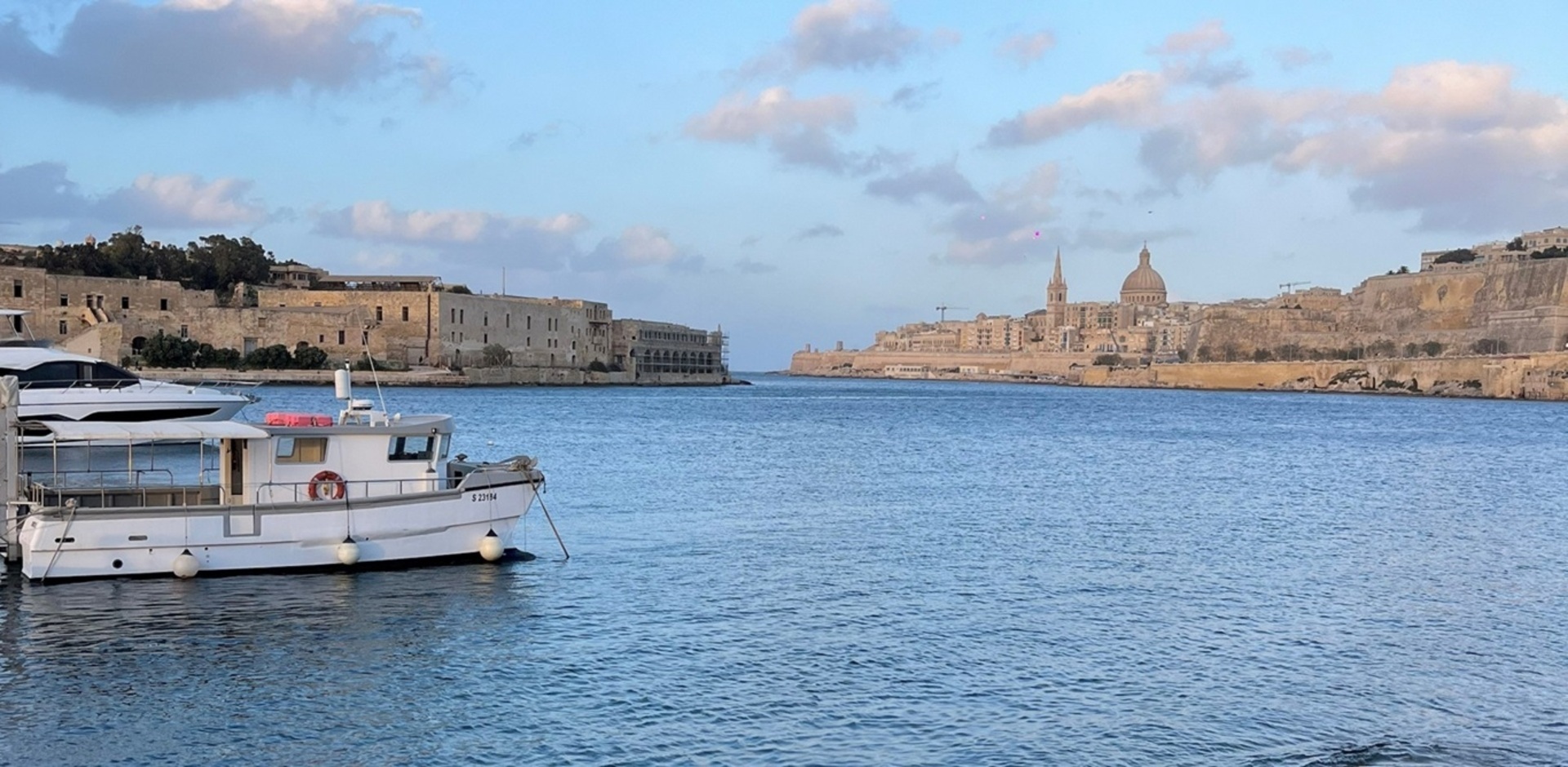 Valetta from waterfront. Photo by: WHO/Marc Gallego
Valetta from waterfront. Photo by: WHO/Marc Gallego
As an island located at the heart of the Mediterranean, Malta has long been a transitional stop for people on the move. Today, it is home to over 11 000 refugees and 2 000 asylum seekers, primarily from Bangladesh, Libya, Syria, Sudan and Ukraine.
With co-funding from the European Union, WHO, in partnership with Malta's Ministry for Health and Active Ageing, hosted the first Knowledge Forum on Refugee and Migrant Health in Malta in April 2024.
The Forum brought together government officials, humanitarian organizations, civil society, United Nations agencies, and other stakeholders to share knowledge, exchange experiences, identify opportunities for collaboration, and advance the implementation of WHO's European Region Action Plan for Refugee and Migrant Health 2023–2030.
Read the full story.
Acknowledgments
The donors and partners acknowledged in this story are (in alphabetical order) European Commission Humanitarian Aid (ECHO), European Union, Germany, Japan, United Nations Central Emergency Response Fund (UNCERF), and United States Agency for International Development (USAID).
Thank you also to UNHCR for its strong partnership in responding to the needs of refugees.
WHO’s work is made possible through all contributions of our Member States and partners. WHO thanks all donor countries, governments, organizations and individuals who are contributing to the Organization’s work, with special appreciation for those who provide fully flexible contributions to maintain a strong, independent WHO.
